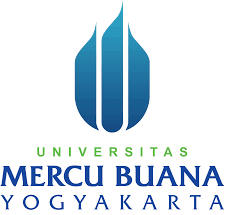Indonesian Language for Java Ethnic: Language and Cultural Problems
DOI:
https://doi.org/10.55927/jlca.v1i3.1190Keywords:
Language acquisition, Cultural problems, Java EthnicAbstract
The use of Java language for the Java ethnic is influenced by the problems between language acquisition and cultural proprietor. The Java language is the mother tongue for most people of Java. The problem for the Java is a government program that has set Indonesian as the national language. That is the language that will unite and bring interethnic relations, religion and culture in Indonesia. There are other impacts to local languages, the Java language is no exception. Javanese people are faced with complex choices about the language and culture as well as educationally and socially. The use of language by government regulation caused the regional languages by the hundreds began somewhat marginalized, especially when the number of speakers slightly. The scope of the use local language to be limitedthat is only used in a family environment for the purposes of religious ceremonies or customs, local cultural events. The limitation scope of the use local language can influence the attitudes of native speakers, as well as for Javanese ethnic and other ethnic groups in Indonesia.
Downloads
References
Chaer, Abdul, Leoni Agustina. 2004. Sosiolinguistik Perkenalan Awal. Jakarta: Rineka Cipta.
Collins, J,T. 2004. The History of Indonesia and The Future of Malay. Dalam K.E. Sukamto (Ed) 2004.
Hung, VV. 2012. Mother Tongue Use in Task-Basan Language Teaching Model. English Language Teaching Journal 5 (8), 23-30.
Kesuma, Trimastoyo Jati. 2007. Pengantar (Metode) Penelitian Bahasa. Yogyakarta : Carasratibooks
KIM, j. 2016. Descriptive Study of Honorofic Use in Korean Email Discourse Indonesian Journal of Applied Linguistics, 6(1), pp 99-111..
Moeliono, Anton. 2009. “Bahasa Indonesia Di Dalam Era Reformasi Dan Globalisasi” dalam Peneroka Hakekat Bahasa (P. Ari Subagyo, Sudartomo, Macaryus ed.) Yogyakarta: Universitas Sanata Dharma.
Purwo, Bambang Kaswanti. 2009. “ Pengembangan Bahasa Daerah: Kekuatan Politik Dan Pendidikan” dalam Peneroka Hakekat Bahasa (P.Ari Subagyo, Sudartomo, Macaryus ed.) Yogyakarta:Universitas Sanata Dharma.
Pusat Bahasa. 2005. Visi, Misi, Program. Jakarta : Pusat Bahasa Depdiknas
Ratna, Nyoman Kutha. 2004. Teori, Metode dan Teknik Penelitian Sastra. Yogyakarta: Pustaka Pelajar.
Undang-Undang Republik Indonesia No. 24 tahun 2009 Tentang Bendera, Bahasa Dan Lambang Negara serta Lagu Kebangsaan: Badan Pengembangan dan Pembinaan Bahasa Kementerian Pendidikan Nasional tahun 2011.
Downloads
Published
How to Cite
Issue
Section
License
Copyright (c) 2022 Farikah, Mursia Ekawati, Yulia Esti Katrini

This work is licensed under a Creative Commons Attribution 4.0 International License.
































